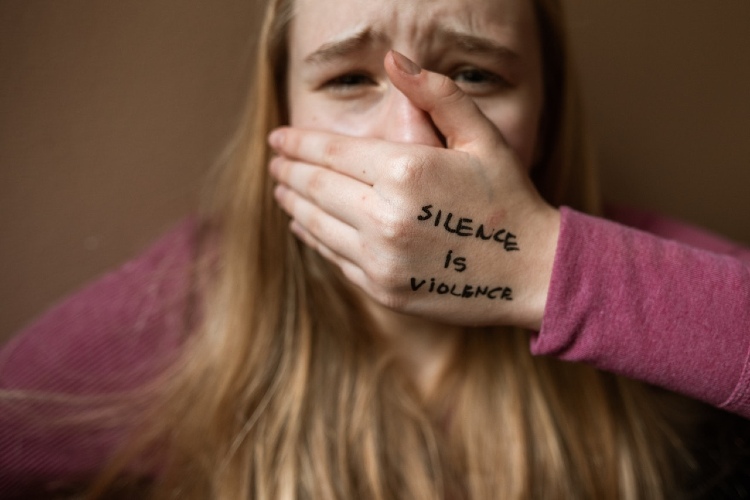Have you been struggling to control your emotional response in high-pressure situations? Do you feel like all your relationships have certain abusive or toxic patterns in common? Do you have to battle feelings of despair, loneliness, and anxiety even on a seemingly normal day?
If you’ve nodded your head in agreement to any of the above questions, chances are you’re a victim of childhood trauma.
Dealing with emotional trauma is always difficult. But children are more susceptible to its effects because they don’t have control over their circumstances. While an adult has the power to remove themselves from an abusive situation, a child may not have a way out. Worse still, the child may not even realize they’re being subjected to abuse and trauma.
Decoding Childhood Trauma
Unresolved trauma from childhood could be the result of various circumstances. Perhaps, you were subjected to physical, sexual, or verbal abuse as a child. Or you might have witnessed violent arguments and fights between your parents. Or you might have had to deal with the death of a loved one during your childhood.
Irrespective of the source of childhood trauma, it’s likely to manifest itself in various forms as you grow up. It can affect every aspect of your life, from personal and professional relationships to physical and mental health.
Exposure to childhood trauma increases your chances of developing mental health disorders, such as depression, anxiety, OCD, etc. Many individuals also find it difficult to trust other people, including their partners. They often feel like they’re left to fend for themselves, and tend to shut their well-wishers out.
Childhood trauma can also affect your idea of self. You might go down a spiral of self-blame and self-hatred. You may even struggle with low self-esteem and constantly question your self-worth.
Also, what people often forget is that childhood trauma has strange ways of manifesting itself. Apart from the emotional and psychological repercussions, it can take a toll on your physical health too.
In fact, experiencing childhood trauma increases your risk of developing chronic ailments, such as hypertension, cardiovascular diseases, and cancer. Such individuals are also more likely to develop substance abuse and eating disorders.
The Problem With Letting Go
If you ever talk about your childhood trauma with anyone, here’s the most common advice you’ll get – you need to let go of the past. What no one tells you is how you’re supposed to forget, forgive, and let go when you’re still struggling to process your emotions.
Moreover, you may not even realize you’re been exposed to trauma as a child until you’re well into adulthood. That makes it even more difficult to get a grip on your feelings and move on with your life.
Also, people who experience a traumatic childhood are likely already battling mental health disorders. That makes it difficult for them to take charge of their life and let go of any negative feelings.
How to Heal Your Trauma Without Letting It Go?
Here’s the thing – you can’t force yourself into letting go of childhood trauma. It’s an organic process that could take years. In the meanwhile, there are plenty of steps you can take to minimize its impact on your physical and mental health.
The first step is to recognize and accept your trauma. In other words, you need to admit to yourself that you’ve experienced trauma as a child. Also, you need to accept that the trauma has shaped you into the individual you’ve become.
You could consider taking the Adverse Childhood Experiences (ACES) quiz to assess the impact of unresolved trauma on your life. It’ll also help you understand how likely you are to develop serious physical or psychological ailments due to the trauma.
Once you’ve made peace with that, the next step is to deal with the surge of emotions you’ll experience. It’s a good idea to consult a therapist or psychiatrist who’ll help you make sense of your feelings and thoughts.
Also, you could consider leveraging alternative therapies, such as inner child healing and neuro-linguistic programming, to heal your trauma. You could even consult a psychic reader to better understand the significance of why things have happened the way they did.
A psychic reading session can be instrumental in helping you overcome feelings of self-blame and self-hatred. You can use trustworthy and credible online psychic reading platforms, such as Keen, to connect with experienced psychics. Make sure you check reviews of Keen psychics before reaching out to them.
Apart from emotional healing, it’s just as important to take care of your physical wellbeing. Try to embrace a healthy lifestyle by incorporating an exercise routine and sleep hygiene practices. Also, stick to a balanced diet that controls your dependence on junk food.
Don’t Let Your Trauma Define You
Exposure to abuse or trauma during your childhood doesn’t define who you are today. Instead of rushing to let go of the pain, take your time to process it and make peace with your trauma. Focus on your lifestyle and try to engage yourself in activities you enjoy doing. Lastly, don’t forget to reach out to your loved ones or a professional therapist for support.








